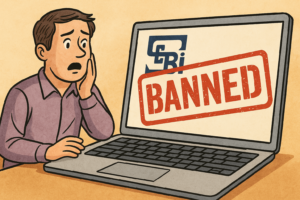The Alchemy of Finance by George Soros first published in 1987, remains a timeless classic that takes the reader into the heart of the financial markets. The book is a fusion of Soros’ philosophical ideas and practical investment strategies, a combination that has made him one of the most successful traders in the world.
The world of finance, with its intricate network of transactions, relationships, risks and rewards, is often likened to a chess game. The mastery of this game requires not just an understanding of the rules but also an ability to anticipate and respond to the moves of other players. This is where the book “The Alchemy of Finance” by George Soros comes in. Soros, one of the most successful traders in history, distills his experience and insights into a valuable guide for both novices and seasoned players of the financial game.
It serves as a masterclass in understanding the dynamics of financial markets, the psychology of trading, and the critical role of reflexivity in financial decisions.
Soros’ theory of reflexivity is the cornerstone of his financial philosophy, a revolutionary idea that challenges the traditional economic theories that market equilibrium is a result of rational expectations. In contrast, Soros argues that financial markets are often driven by the irrational behavior of traders, and the perceptions of the market participants can influence the fundamentals they are supposed to reflect. This concept, while complex, provides valuable insights for navigating the turbulent waves of the financial markets.
In this blog post, we will delve deep into the key ideas presented in “The Alchemy of Finance” and what we can learn from them. We will uncover the gems of wisdom that Soros has laid out, each one a valuable lesson for understanding and operating in the financial markets. From stock trading to forex, these insights will equip you with the knowledge and perspective needed to succeed in the world of finance.
1. Reflexivity
Reflexivity is the central theme of the book, a concept that Soros uses to explain the inherent unpredictability of financial markets. Unlike the traditional economic view that markets always reflect fundamentals, Soros posits that market participants’ perceptions can alter the very fundamentals they are supposed to reflect. For instance, overvalued stocks can become even more overvalued if traders perceive them as such, irrespective of the company’s actual performance.
2. Fallibility
Soros emphasizes the fallibility of market participants, arguing that our understanding of the world is inherently imperfect. Traders often make decisions based on incomplete information, leading to mistakes that can impact the market. For example, the 2008 financial crisis was partly due to the fallibility of rating agencies that misjudged the risk of mortgage-backed securities.
3. Boom-Bust Process
The boom-bust process, a cycle of over-optimism followed by severe pessimism, is a direct consequence of reflexivity and fallibility. Soros illustrates this with the example of the dot-com bubble in the late 1990s. The market’s over-enthusiasm for internet companies led to a boom, which was inevitably followed by a bust when the inflated expectations could not be met.
4. The Role of Perception
Soros stresses that perception plays a significant role in shaping financial markets. The collective perception of market participants can drive market trends, even when these perceptions are not grounded in reality. A classic example is the tulip mania in the 17th century, where the perception of the tulip’s value led to a speculative bubble.
5. The Mispricing of Assets
According to Soros, assets are often mispriced in the market due to reflexivity and the fallibility of traders. This mispricing can create opportunities for profit. For example, during the 2008 financial crisis, many fundamentally strong companies were undervalued due to widespread panic, creating buying opportunities for savvy investors.
6. The Importance of Timing
In the world of finance, timing is everything. Soros underscores the importance of entering and exiting the market at the right time. A trader who bought Bitcoin in early 2017 and sold at its peak in December the same year would have made a substantial profit. However, those who entered the market at the peak would have suffered heavy losses.
7. The Power of Trends
Financial markets are often driven by trends. Once a trend is established, it tends to perpetuate itself until an external force or internal inconsistency disrupts it. For instance, the trend towards digitization has propelled the stocks of tech companies like Amazon and Google.
8. The Danger of Dogmatism
Soros warns against the danger of dogmatism in financial markets. Traders who rigidly adhere to a particular theory or strategy without considering changing market dynamics can suffer losses. Instead, one should adapt to the market’s rhythm and flow.
9. The Role of Credit
Credit plays a crucial role in the financial markets. Excessive credit can lead to asset bubbles, while the lack of credit can result in market crashes. The 2008 financial crisis, fueled by easy credit and lax lending standards, exemplifies this point.
10. The Importance of Macro Factors
Soros highlights the importance of macro factors, like economic policies and geopolitical events, in influencing financial markets. The impact of the US-China trade war on global stock markets is a case in point.
11. The Influence of Psychology
The psychology of traders significantly influences financial markets. Fear and greed often drive market swings. The fear of missing out (FOMO) can fuel asset bubbles, while panic selling can exacerbate market crashes.
12. The Value of Contrarian Investing
Soros advocates for contrarian investing – going against the market consensus. This strategy can yield high returns if one’s analysis is correct. Warren Buffett’s investment in Goldman Sachs during the 2008 crisis, when others were selling, is an example of successful contrarian investing.
13. The Role of Regulation
Regulation is necessary to prevent excessive risk-taking and maintain the stability of financial markets. However, over-regulation can stifle innovation and economic growth. The balance is crucial.
14. The Illusion of Certainty
Soros cautions against the illusion of certainty in financial markets. Markets are inherently unpredictable and risky. Traders who operate under the illusion of certainty can suffer significant losses.
15. The Interplay of Supply and Demand
The basic economic principle of supply and demand drives financial markets. Imbalances between supply and demand can create investment opportunities. For instance, the housing shortage in major cities has led to a boom in real estate prices.
16. The Power of Diversification
Diversification is a risk management strategy that Soros espouses. By spreading investments across various assets, sectors, and geographies, one can mitigate risks and enhance returns.
17. The Risk-Reward Ratio
Soros emphasizes the importance of understanding the risk-reward ratio. High returns often come with high risk. Traders should weigh the potential returns against the associated risks before making investment decisions.
18. The Need for Continuous Learning
In the ever-evolving world of finance, continuous learning is imperative. Soros urges traders to keep updating their knowledge and skills to stay ahead of the curve.
In essence, “The Alchemy of Finance” provides a holistic view of financial markets, encompassing various aspects such as psychology, regulation, macroeconomics, credit dynamics, and more. It emphasizes the role of reflexivity, fallibility, and perception in shaping financial markets, thus offering a new lens to look at the world of finance. Each key idea from the book is a tool that can help traders make sense of the complex market dynamics and navigate the turbulent financial seas with greater finesse.
George Soros’ insights serve as a reminder that finance is not just about crunching numbers and analyzing charts. It’s also about understanding human psychology, recognizing trends, adapting to changes, and learning from mistakes. This perspective is particularly important in today’s world, where financial markets are becoming increasingly complex and intertwined.
In conclusion, “The Alchemy of Finance” by George Soros is a treasure trove of financial wisdom. It provides a deep understanding of the financial markets and equips traders with valuable insights to make informed decisions. From the theory of reflexivity to the importance of continuous learning, the key ideas presented in the book offer valuable lessons for anyone involved in the financial markets.
Whether you are a seasoned trader, a finance student, or someone interested in understanding the financial markets, this book is a must-read. It encourages you to challenge conventional wisdom, think critically, and develop a flexible mindset. In the volatile and unpredictable world of finance, these skills can make the difference between success and failure.
The Alchemy of Finance does not provide a magic formula for financial success. It does, however, offer something far more valuable: a framework for thinking about and navigating the financial markets. Soros’ insights remind us that the world of finance is a dynamic, complex system that requires continuous learning, adaptability, and a keen understanding of human behavior. With these tools, one can indeed turn the base metals of financial knowledge into the gold of financial success.
Here are some notable quotes from George Soros that encapsulate his financial philosophy and perspective:
- “Markets are constantly in a state of uncertainty and flux and money is made by discounting the obvious and betting on the unexpected.”
- “The financial markets generally are unpredictable. So that one has to have different scenarios… The idea that you can actually predict what’s going to happen contradicts my way of looking at the market.”
- “I’m only rich because I know when I’m wrong…I basically have survived by recognizing my mistakes.”
- “It’s not whether you’re right or wrong that’s important, but how much money you make when you’re right and how much you lose when you’re wrong.”
- “The worse a situation becomes, the less it takes to turn it around, and the bigger the upside.”
- “Reflexivity is a two-way feedback mechanism that can amplify both virtuous and vicious circles.”
- “Once we realize that imperfect understanding is the human condition, there is no shame in being wrong, only in failing to correct our mistakes.”
- “I contend that financial markets never reflect the underlying reality accurately; they always distort it in some way or another and the distortions find expression in market prices.”
- “The stock market is not a casino, but if you move in and out of stocks every time they move a point or two, to all intents and purposes, you’re playing a slot machine.”
- “If investing is entertaining, if you’re having fun, you’re probably not making any money. Good investing is boring.”
Did you know? Creators like to use our coworking space in Bangalore
Learn more about our coworking space on our YouTube channel Work Theater Studios where we talk about a variety of topics including personal finance, entrepreneurship, business and life.
Did you know? We also have a private theatre in Bangalore.




